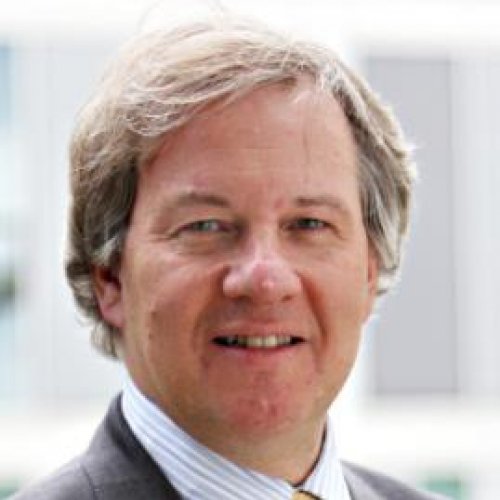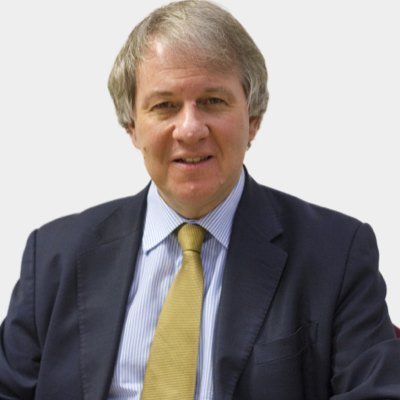Influencing With Impact and Integrity
Q: You yourself are an active member of a collaboration between academics, policy-makers and practitioners. Tell us more about that area of activity.
A: For the past three years, I have been a contributor, a section editor and now a senior editor of an annual publication that captures learning in cross-sector collaboration and interaction between business, civil society and public sector.
The Annual Review of Social Partnerships (ARSP) is an annual journal, aiming to bridge theory and practice of cross-sector partnerships. It does this by using innovative, open-access publication formats, engaging an international and cross-disciplinary Editorial Board and ensuring the cross-fertilisation of insights from both academics and practitioners. The ARSP is a public good with more than 50,000 direct recipients and, through its partnership with Greenleaf Publishers, is categorised and available via Ingenta Connect, one of the largest databases for professional publications and books. My section particularly is focussed on practitioners such as myself, reflecting on their experience of collaboration and sharing that learning.
Useful link: http://www.greenleaf-publishing.com/journals/annual-review-of-social-partnerships
We know from recent events that we face uncertain and turbulent times in 2017, and one way through the time of crisis and uncertainty is to think and plan more collaboratively – while at the same time, acknowledging that collaboration and partnership may not be always appropriate and may have severe limitations. We saw with the global financial crisis just how important it was that there was international cooperation, if not collaboration. I think we are facing again many wicked problems that can only be tackled through countries, sectors and organisations, where appropriate, working much more closely.
Useful link: http://webarchive.nationalarchives.gov.uk/20121212135632/http:/www.fco.gov.uk/resources/en/pdf/pdf9/enabling-state-v3
Q: In what ways is collaboration and partnership important for The Open University and its subsidiary, FutureLearn?
A: The Open University is the largest player in the Lifetime Learning sector,recognising a major opportunity for this country to make the most of its workforce by upskilling or reskilling. The OU is working with governments, business and civil society to put value on part-time learning and to address the issues that prevent people from studying.
Part of the OU’s mission is to ensure equality of access to and success in high quality higher education for all those with the desire and potential to achieve. The OU’s Centre for Inclusion and Collaborative Partnerships (CICP) is proud of its work to widen access to and success in higher education, working collaboratively with external organisations through validation and the Social Partnerships Network and developing research and scholarship via the Access Observatory.
Another powerful example of successful collaboration is FutureLearn – a social learning platform, designed to support learning through conversation. It offers free online courses from 62 world-leading UK and international universities and 40 centres of research excellence and specialist education providers like the British Council, Creative Skillset and European Space Agency.
Future Learn was formed by the OU in 2012, following the rapid development of massive open online courses (MOOCs) in the global higher education sector, led by American providers like Coursera and edX. It has reached over 5 million learners, studying over 12 million courses between, from more than 190 countries and territories around the world.
Q: Collaboration for you has worked in other roles you’ve done, particularly when you were Director of Communications at the Foreign & Commonwealth Office (FCO). Please say more about that.
A: I am very pleased to welcome the publication of a new volume of the British Public Diplomacy and Soft Power series: Diplomatic Influence and Digital Disruption, by James Pamment. This latest study outlines two decades of reforms at the Foreign & Commonwealth Office (FCO), British Council and BBC World Service – the so-called Public Diplomacy Partners. Its timely publication includes the initiatives, campaigns and publications I was responsible for between 2006 and 2009 – a pioneering time, a time of effective influence – which focussed on how the UK could play a more pro-active role in working with other countries to deal with challenges of the day, such as climate change. What is even more important in today’s conflicted world, is the value of thinking about strategic communications globally and campaigns that carry support from different countries, with different backgrounds and priorities but a shared purpose. We must not lose sight of how much more can be achieved if we work together.
Overall, the book is rich with unpublished documents and case studies, and is the most detailed study of the FCO and British Council in the contemporary period. This work will be of much interest to policymakers and advisors, students and researchers, and foreign policy and communication specialists.
Useful link: https://books.google.co.uk/books?id=xPRGDQAAQBAJ&dq=lucian+hudson&source=gbs_navlinks_s

Lucian J. Hudson
Director of Communications, The Open University
Now in his fifth communications chief role, Lucian J. Hudson helps transform top organisations through strategic communications.He has held top communications posts in four UK government departments, including Director of Communication, Foreign and Commonwealth Office, and Director of e-Communications – the first holder of this post. Lucian recently was an independent expert reviewing communications capability at the Cabinet Office and No10 (report published June 2013). Before joining The Open University, and after leaving the Civil Service, Lucian was Partner and the first Managing Director of Cornerstone Global Associates, providing international strategic consultancy to government, business, civil society organisations, universities and business schools. An accredited CEDRmediator, Lucian is an expert in brokering collaborative resolution. Lucian was a senior executive and television journalist with the BBC and ITV for 17 years. As Head of Programming, International Channels, BBC Worldwide, he helped establish the first international television channels as a joint venture between BBC and Discovery. As Strand Editor, BBC World, he led the transformation of breaking news and live events, which included producing the first six hours of television coverage on the death of Princess Diana. For the past 15 years, Lucian has been Chairman of three non-profit organisations: Liberal Judaism, Tavistock Institute of Human Relations and Rory Peck Trust. Lucian wrote the first international report on the scope and limits of cross-sector collaboration, “The Enabling State: Collaborating for Success” (FCO, 2009), based on extensive primary and secondary research. He is active on social media networks, LinkedIn and Twitter @LucianHudson, and is listed in ‘Who’s Who’ (www.ukwhoswho.com). He posts a regular personal blog (http://www.open.ac.uk/blogs/lucian-hudson).
Published: 17/03/2017



